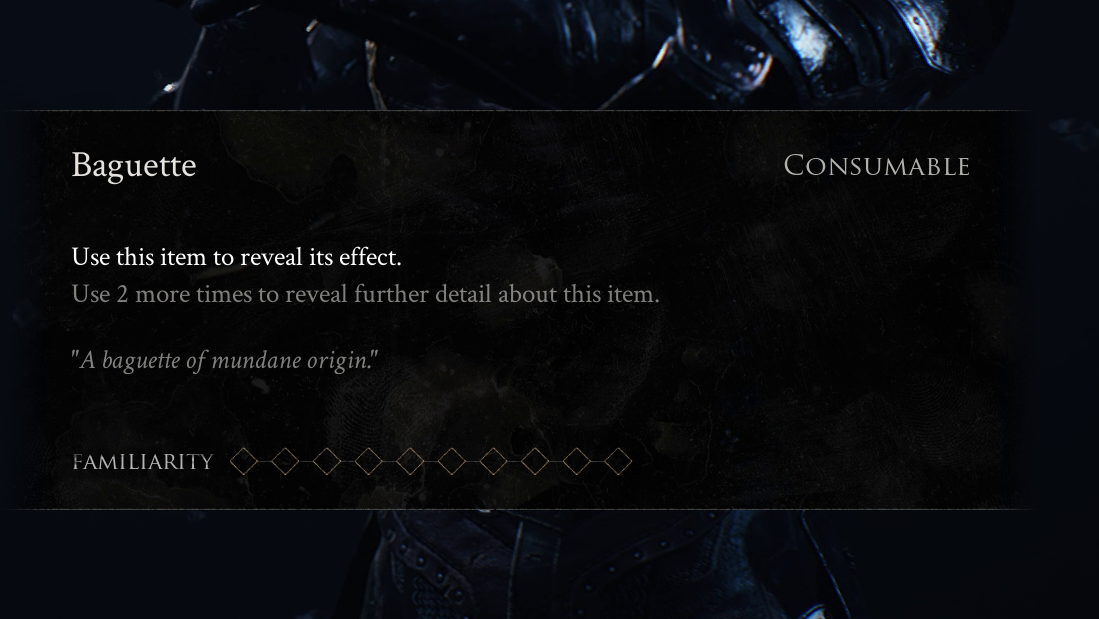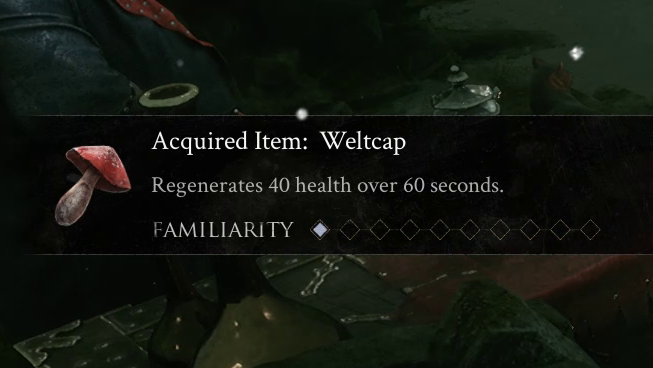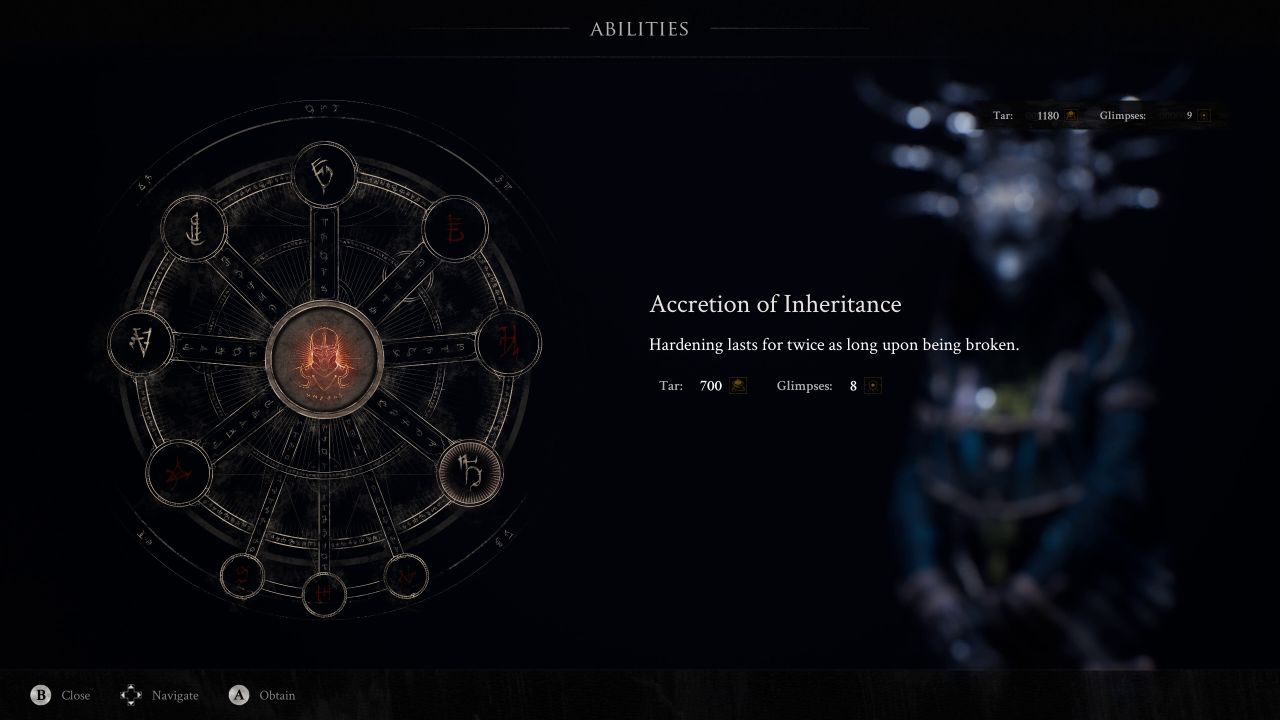Mortal Shell hands-on: the best and worst of Souls-likes
A fascinating grimdark world butts up against difficulty and pacing problems.
Someone's playing the lute nearby, a pleasant little melody. There's hope in it. Joy. A dense canopy of gnarled branches blot out the sun as a fog settles. Mushrooms huddle near tree trunks and gather along the path towards the light of a fire in the distance. The opening area of Mortal Shell's demo speaks in more of a gentle high-fantasy voice than I expected from all those grimdark trailers. I mean, I wouldn't be surprised if a couple hobbits skipped by singing a song about bread and cheese.
But as I head downhill and approach the two adventurers near the fire, metal teeth snap around my ankle and lock me in place. With the languid pace of someone going through the motions at their day job, the brigand playing the lute slowly puts the instrument away. He stands up, axe raised, and approaches. His friend joins. Their muscles are sinew, leathery skin pulled tight from hunger and labor. I'm dinner and a paycheck.
I die, of course, and the next time around I find out those two aren't the end of the opening salvo. Just beyond the fire (I trip another bear trap on the way), two brigands flank me from either side as a solid mass of muscle and armor wielding a halberd sprints at me between them.
Mortal Shell is a Dark Souls concentrate, a much denser, more challenging reconfiguration of the Souls-like that jams more traps, ambushes, and intense duels into a single arena than the whole of the Undead Burg. It's a lot. Too much, sometimes.
Hardened resolve
The demo build of Mortal Shell I played consists of a tutorial area and two snippets from other areas: The spooky bear trap forest and a small stretch of underground tombs that ends with a boss fight. Two of the four shells, Mortal Shell's class archetypes, were available to try: Harros the Vassal, a burly knight with slow strong swings and a lot of health, and Tiel the Acolyte, a shell with a deep pool of stamina for chaining together special shadow dodges. I'd wager you get a few extra invincibility frames with them.

To find out what an item does at all, you'll need to use it first. Subsequent uses often unlock bonuses, too.
Combat works as you'd expect, from the start at least. Circle-strafe enemies with a generous lock on, study their attack animations, and maneuver around them, getting hits in when safe. You can parry some attacks and, by expending energy you build from fighting aggressively, you can follow a parry with a critical attack that does major damage and gives you back some health. It's all pretty standard third-person melee stuff so far, but the harden ability makes things truly interesting.
Press a button and you can turn to stone at literally any moment to absorb and stun an incoming enemy attack. Standing still, in the middle of your own attack animation—doesn't matter. It essentially functions as a tanking button. I see a big attack incoming that I'm not prepared to dodge or parry and I might harden to block the attack and avoid taking damage. Neato, an impenetrable shield with a short cooldown.
The biggest gaming news, reviews and hardware deals
Keep up to date with the most important stories and the best deals, as picked by the PC Gamer team.
Even better is the pause-and-play nature of hardening. If I commit to an attack with garbage timing right as an enemy is about to hit me—Mortal Shell's attack animations are slow and heavy, like playing a Dark Souls strength build by default—then I can temporarily harden to stop my animation, absorb the attack, and then resume the attack immediately.
Fixing oopsies feels great and looks cool, imbuing fights with strange rhythms and imposing energy as weapons glint off my rocky carapace and brigands wheel backwards in surprise. The cooldown timer is pretty generous too, only taking a few seconds to refill. Enemies are extremely aggressive, so it's impossible to completely lean on hardening, but I like it as a stylish, expressive wrinkle to a familiar combat style.
Shell upgrades expand and alter combat skills, though Mortal Shell isn't opting for an open-ended points-based RPG skill system. Each shell has bespoke upgrades unlocked with Tar (the primary currency) and Glimpses (dropped from enemies at random), both lost on death unless retrieved from where you perished. Trade them in with a spooky, soft-spoken NPC for upgrades like a 25% harden cooldown (Harros) or to convert all poison damage into healing (Tiel). One upgrade gives your spirit form a little more time to repossess your body which, well, let me explain.
Death is pretty weird in Mortal Shell. The first time your HP hits zero, your spirit form will fly out of your shell, sword in hand. You can rush to climb back into your shell or run around as the super vulnerable spirit with one hit point to lure enemies away from your body, or attempt some risky attacks before entering your former vessel again. It sure looks cool, but doesn't lend much to the action besides a little dramatic elasticity, especially because you can only do it once. I have a feeling I haven't seen its full utility yet. After climbing back in, the next HP drain will send you back to the start of the area. This happened to me a lot.
We'll just have to see how the greater composition of Mortal Shell allows players to poke at the edges for special items, weapon upgrades, and whatever else makes the going a touch easier. Because, hoo boy, Mortal Shell is not easygoing.
Walls closing in

If you're low on health, healing mushrooms respawn on a timer around each level.
Every time I died in the forest level I had to take on the same brigands, the same big brute, and step around the same bear traps. And yeah, I got good, but never quite good enough to feel like I wasn't wasting time.
Even the best Souls players slip up. It's called the Estus Tax, taking a hit or two from enemies you've otherwise mastered. To be human is to screw up parry timings, after all. And in Mortal Shell, even a botched dodge from the gruntiest grunt can mean death. A couple hits, three or four, from most enemies will easily empty the health bar. One or two hits from bigger enemies is all it takes. There's very little room for error, whether it's your first time through an area or the fifteenth. And even then, enemies stay pretty stout. A battle with that first brute takes around 15 to 20 seconds with aggressive, perfect execution. There are two more just behind him, by the way.
I can understand the design ethos here. Cold Symmetry is a much smaller studio than FromSoftware. Smaller, slower-paced levels with fewer enemies are a necessity. Denser enemy arrangements imbued with more danger are a natural way to balloon those spaces with tension and atmosphere. There's far less space to introduce new enemy types with varying arrangements and numbers—these are quick, powerful hits of combat design that assume you've played games like this before.
It's why talking about Mortal Shell without talking about Dark Souls is almost impossible. A disservice, even. You're introduced to that first challenging brute enemy for the first time alongside two smaller enemies with no solo icebreaker, which would be a final test in Dark Souls. And for a seasoned Souls player, it works. The first few times through an area, at least.
Congesting these smaller spaces with more HP to carve through and so little room for error sucks some of the joy out of mastering each level or returning to explore them. I clapped the first time a crypt guardian ripped two swords out of their torso to fight me, and louder when they cut their own head off and threw it at me before exploding in a cloud of toxic gas. Going down like that was rad, and I knew I didn't have a long trek back. But when I died for the fifth time to a crowd of ghouls and a guardian in the very next room, I started losing steam.

Even after mastering the room and upgrading my weapon, I wasn't saving much time with every run. Just beyond are two massive enemies with scythe arms and a spinning attack that ruined me many, many times. And they're right before the area boss. Mortal Shell's iterative loop is too long and pointlessly punishing.
I'd kill for a checkpoint system, maybe weaker enemies, not because I didn't like the initial challenge, but because I didn't find the areas challenging or fun or my character significantly improved on the umpteenth runthrough. It quickly degraded into repetition without reward.
But I don't feel like Mortal Shell is beyond the point of repair, and I was willing to work through the repetition to explore the corners of its gorgeous environments. Mortal Shell's spaces feel recently occupied or currently lived in, and on top of the archeological tourism of long lost civilizations I love in grimdark fantasy fiction. In one nook of the forest I found a partially nude, melting merchant with a booming voice, ecstatic to "Engage in some rousing commerce." You can pet his cat for a lovely little animation, too.
And that guy with the lute that tried to eat me? It's my lute now. I play it to calm my nerves, some light in the mountains of indulgent darkness.
I especially like how each shell is the body of a major character, and how every upgrade comes with a new voiced line detailing major events in their past. Items, too, are packaged with a vague description pointing to off-screen histories, cultures, and structures that make a spooky forest feel like part of something much bigger. How elegantly those pieces fit into the context of the whole, however, remains to be seen.
Souls-likes are often talked about in terms of difficulty, but the subgenre wouldn't exist without Dark Souls' impeccable world building. And Mortal Shell just might be on track to deliver a fascinating story of its own. It just needs to find a better alignment between the difficulty and fiction, a challenge that props up the tension and narrative themes rather than a challenge that exists just because. Mortal Shell is on the cusp of being so much more, and maybe it's already greater than the parts I've seen, but my first, admittedly small taste, has me as worried as I am excited, and I'm pretty damn excited.
James is stuck in an endless loop, playing the Dark Souls games on repeat until Elden Ring and Silksong set him free. He's a truffle pig for indie horror and weird FPS games too, seeking out games that actively hurt to play. Otherwise he's wandering Austin, identifying mushrooms and doodling grackles.


